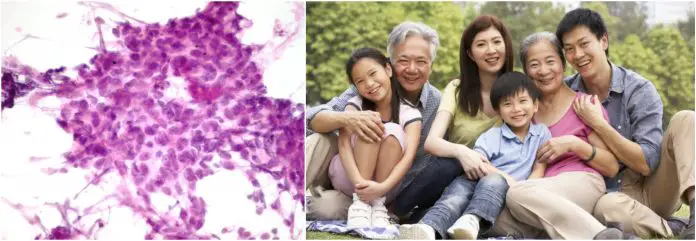Have you heard of Cantonese cancer? It is actually nasopharyngeal carcinoma (NPC) and is referred to as Cantonese cancer. This is because of how much it affects those from the Cantonese dialect group. Now, scientists in Singapore have discovered new variants of the virus.
Nasopharyngeal Carcinoma (NPC) or Cantonese Cancer

NPC is a type of cancer that affects the tissue of the nasopharynx. Specifically, this is located behind the nasal cavity and just above the throat.
A person is more at risk of developing NPC under certain risk factors. To list, this includes being Chinese or Asian, exposure to the Epstein-Barr virus (EBV), and consuming large amounts of alcohol.
New Strains of the Virus
However, scientists in Singapore have discovered new variants of a virus associated with various cancers. One of which is the Cantonese cancer. In fact, being able to identify this strain in individuals allows for early preventive care.
Furthermore, the two new EBV variants are linked to NPC as well as gastric cancer and various types of lymphoma.
In addition, it has been found that individuals possessing the strain of virus are 11 times more likely to develop NPC. Next, about 80% of NPC cases in Cantonese individuals are caused by this strain.

The discovery was made by a team of scientists from three different institutes. Firstly is the Agency for Science, Technology and Research’s Genome Institute of Singapore.
Next, Sun Yat-Sen University Cancer Centre is also part of the team.
Lastly, the Institute of Zoology of the Chinese Academy of Sciences assisted in the research too.
Benefits of the Discovery
The ability to identify the strain in individuals allows for better preventive treatment. Those with the strain can go for regular check ups and make lifestyle changes to lower their chances.
Being able to detect the cancer in its early stages will also increase the probability of beating the cancer. Treatment can be less intensive and patients will be able to heal faster from any side effects.















